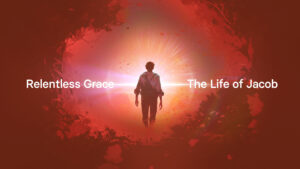Breaking Bad – Genesis 34:1-31: Reflection Guide
Reflection Guide
Genesis 34:1–31
Key Terms
Shechem – A prominent city in Canaan, 50 miles north of modern-day Jerusalem. Shechem is also the name of the son of Hamor—the ruler of Shechem in Genesis 33-34.
In Israel – Genesis 34:7 is the first time Jacob’s family uses the new name Israel. Although just receiving this name for himself in Gen 33, Jacob’s family now understands it as not simply for Jacob but for them also. In Gen 34, the name Israel marks Jacob’s family as a separate people from the Hivites.
The third day – Jacob’s sons attacked Shechem on the third day (Gen 34:25) after the men were circumcised because tradition stated that the third day after the procedure was the most painful. There are over 50 references to something taking place on the third day in the Old Testament—far more than other day—which is interesting considering Jesus was raised on the third day. The only two explicit New Testament connections to Old Testament events occurring on the third day are in Luke 24:4—when Jesus seems to be alluding to Hosea 6:2—and in Matthew 12:40 —when Jesus compares himself to Jonah from Jonah 1:17. In both instances, Jesus is foreshadowing that he will die and be raised on the third day.
Background
After re-uniting with Esau, Jacob and his family continue their journey home and finally arrive in Canaan—purchasing land, building an altar, and setting up camp in Shechem (Gen 33:18-20). After settling in Shechem, Jacob’s daughter Dinah is raped by Shechem (the son of the local ruler) and Shechem asks his father Hamor to get me this girl for my wife (Gen 34:1-4). Hamor then comes to Jacob and asks for Dinah to marry his son Shechem and offers to establish peaceful relations between his people and Jacob’s family through intermarriage and economic partnership (vv. 5-14). Jacob’s sons are indignant and very angry (v. 7) but act as if they will agree to Hamor’s request on one condition: the men of Hamor’s people must be circumcised (vv. 13-17). Hamor’s people agree to this condition and—while they are recovering from the procedure—Simeon and Levi lead an attack against the city, killing all the men, taking Dinah back home, plundering the city, and capturing the women and children (vv. 25-29). Jacob is upset by his son’s actions and his chief concern seems to be for the safety of himself and his family saying, You have brought trouble on me by making me stink to the inhabitants of the land…my numbers are few, and if they gather themselves against me and attack me, I shall be destroyed, both I and my household (v. 30). This chapter then ends with Jacob’s son’s defending themselves and retorting, Should he treat our sister like a prostitute? (v. 31).
Did You Know?
The famous scene in the Gospel of John when Jesus speaks with a Samaritan women at a well takes place outside of Shechem—called Sychar in the 1st century (see John 4:1-45).
Going Deeper
Read John 2.13-25. . Why is Jesus’ anger righteous here? How do Dinah’s brothers display righteous anger? How (or when) does their anger move away from righteousness? How does the judgement of God—which will punish evil in the end—comfort us today and give us freedom?
Reflection Questions
Learning the Word
1. In Genesis 31:13 and Genesis 35:1, where did God tell Jacob to go? Now skim through Genesis 33:12-20 to see where Jacob actually went. Do you think it felt like a big decision for Jacob to settle in Shechem instead of with his kindred in the land?
2. In Genesis 34:1-7, how did Jacob respond when he hears that Dinah has been raped by Shechem? How did Dinah’s brothers respond? What do these responses reveal?
3. In Genesis 34:8-24, how did Hamor respond when he hears that Dinah has been raped by his son, Shechem? How did the men of the city respond? What do these responses reveal about their priorities and about the corrupt system that plagued Dinah’s world?
4. In Genesis 34:25-31, we see Jacob’s sons execute vengeance on the men of Shechem. Do you think they were justified? Was Jacob’s response better? Why or why not?
5. Why do you think Scripture includes chapters like this in the Bible? How does this depict the ugly side of human nature in a realistic way?
Living the Word
6. Read Isaiah 53:4-6, 1 Peter 3:18, Romans 5:8-10. What did Jesus do about the ugly side of human nature? How does this give us hope, even beyond the tragedies of life?
7. Why do you think people compromise to “settle in Shechem” rather than seeking the blessing of God in Bethel? How does a desire for comfortable compromises lead people astray little-by-little?
8. What is a potential temptation to compromise in your life that you need to avoid today? In other words, what is something that doesn’t seem like a horrible sin but keeps you from enjoying God’s best for you?
Practice this week: Begin each day with a prayer such as “Lord, draw me away from every temptation to compromise and draw me as near as possible to enjoy you today.”

